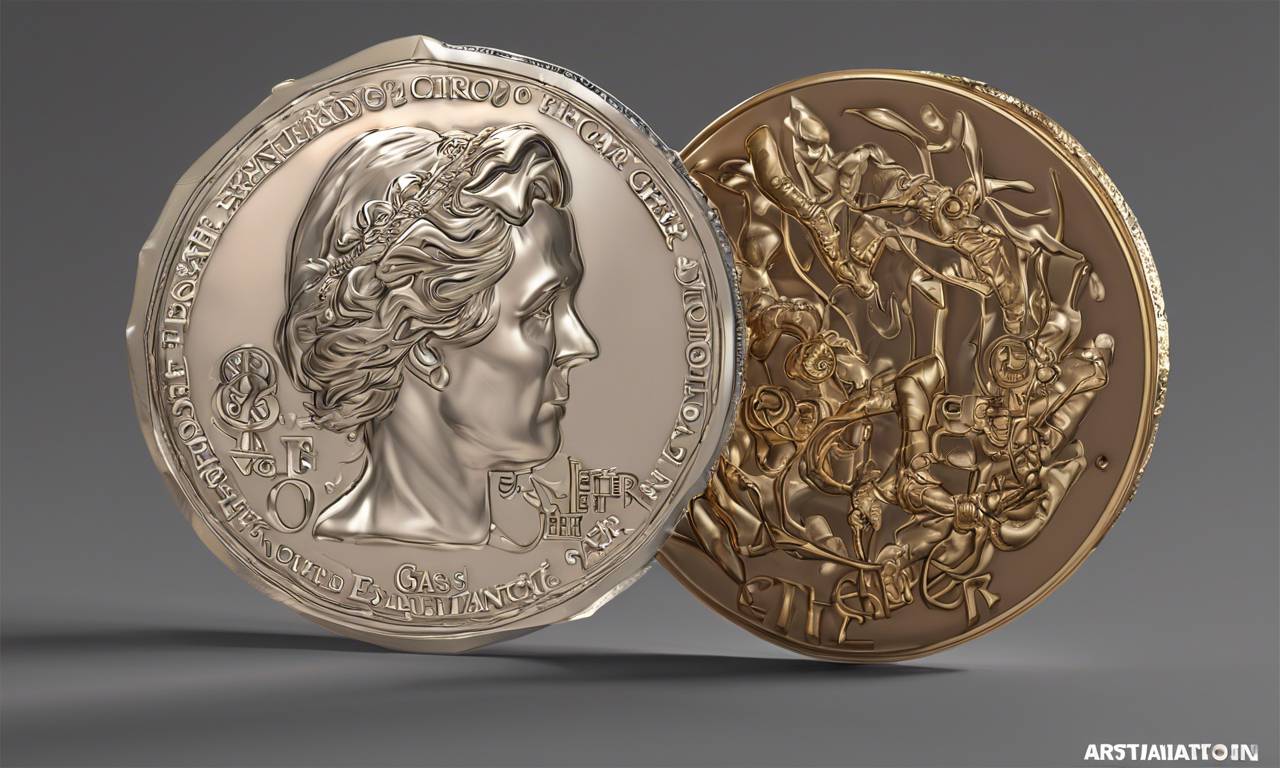Gas Coin vs. Ether: Analyzing the Relationship
Are you interested in cryptocurrencies and looking to invest? If so, you’ve probably come across terms like Gas Coin and Ether. These two cryptocurrencies are often compared due to their close relationship within the blockchain ecosystem. In this article, we will analyze the relationship between Gas Coin and Ether, discussing their similarities, differences, and the factors that affect their values. So, let’s dive in!
Gas Coin: Understanding its Role
If you are familiar with blockchain technology, you may already know that it relies on a decentralized network of computers to validate and record transactions. However, these transactions require computational power, which is where Gas Coin comes into play.
Gas Coin is a cryptocurrency that acts as a fee for performing operations on the Ethereum blockchain. It serves as an incentive for miners to process and verify transactions by compensating them with Gas Coins.
The amount of Gas Coin required for a transaction depends on its complexity and the computational resources needed. For example, executing a smart contract or deploying a decentralized application (DApp) requires more Gas Coins than a simple transfer of Ether.
Ether: The Fuel of Ethereum
Now that we understand the role of Gas Coin, let’s talk about Ether. Ether is the native cryptocurrency of the Ethereum blockchain and serves as both digital currency and fuel for executing operations on the network.
Unlike Gas Coin, which is used solely for transaction fees, Ether has broader use cases within the Ethereum ecosystem. It can be used to pay for goods and services, participate in initial coin offerings (ICOs), or even as collateral in decentralized finance (DeFi) applications.
The Relationship Between Gas Coin and Ether
Gas Coin and Ether have a close relationship due to their interconnected roles within the Ethereum blockchain. Gas Coin determines the cost of executing transactions, while Ether is used to pay for these transactions.
When you initiate a transaction on the Ethereum network, you need to specify the amount of Gas Coin you are willing to pay. This Gas Coin is then converted into its equivalent value in Ether at the current exchange rate. Therefore, the price of Gas Coin in terms of Ether can fluctuate depending on market conditions and demand for transactions.
This relationship between Gas Coin and Ether creates an interesting dynamic. As the usage and demand for Ethereum increase, more transactions are executed, leading to higher Gas Coin fees. Consequently, this increased demand for Gas Coin drives up the price of Ether.
Factors Affecting the Value of Gas Coin and Ether
Now that we understand how Gas Coin and Ether are interlinked, let’s explore some factors that influence their values:
- Ethereum Network Activity: As mentioned earlier, increased network activity results in higher demand for transactions and subsequently drives up the value of both Gas Coin and Ether.
- Market Sentiment: Cryptocurrency markets are highly influenced by market sentiment. Positive news or developments related to Ethereum can lead to increased confidence and investment, driving up the value of both cryptocurrencies.
- Competition: Other blockchain platforms may pose competition to Ethereum. If a competitor gains traction or offers more efficient transaction processing, it could impact the value of both Gas Coin and Ether.
- Regulatory Environment: Government regulations or restrictions on cryptocurrencies can affect their value. Any regulatory changes impacting Ethereum can have a direct impact on both Gas Coin and Ether.
Frequently Asked Questions (FAQs)
1. Can I invest in Gas Coin and Ether?
Yes, you can invest in both Gas Coin and Ether. They are traded on various cryptocurrency exchanges, allowing you to buy and sell them based on your investment strategy.
2. Which is a better investment, Gas Coin or Ether?
The choice between Gas Coin and Ether as an investment depends on your investment goals and risk appetite. Conduct thorough research, analyze market trends, and consider professional advice before making any investment decisions.
3. Are Gas Coin and Ether the only cryptocurrencies on the Ethereum blockchain?
No, there are numerous other cryptocurrencies built on the Ethereum blockchain. These tokens serve various purposes within decentralized applications and smart contracts.
4. Is it possible for the value of Gas Coin to exceed the value of Ether?
In theory, it is possible for the value of Gas Coin to exceed that of Ether. However, this scenario is unlikely as Gas Coin derives its value from the demand for transactions on the Ethereum network, which is powered by Ether.
In Summary
We have explored the relationship between Gas Coin and Ether, two cryptocurrencies closely tied to the Ethereum blockchain ecosystem. While Gas Coin acts as a fee for executing transactions, Ether serves as both digital currency and fuel for operations within Ethereum.
The values of Gas Coin and Ether are influenced by factors such as network activity, market sentiment, competition, and regulatory environment. Understanding these factors can help you make informed investment decisions in the volatile world of cryptocurrencies.
Whether you choose to invest in Gas Coin or Ether or any other cryptocurrency, always remember to conduct thorough research and seek professional advice. The cryptocurrency market can be highly unpredictable, and it is essential to stay informed and make informed decisions based on your risk tolerance and investment goals.





 By
By
 By
By
 By
By

